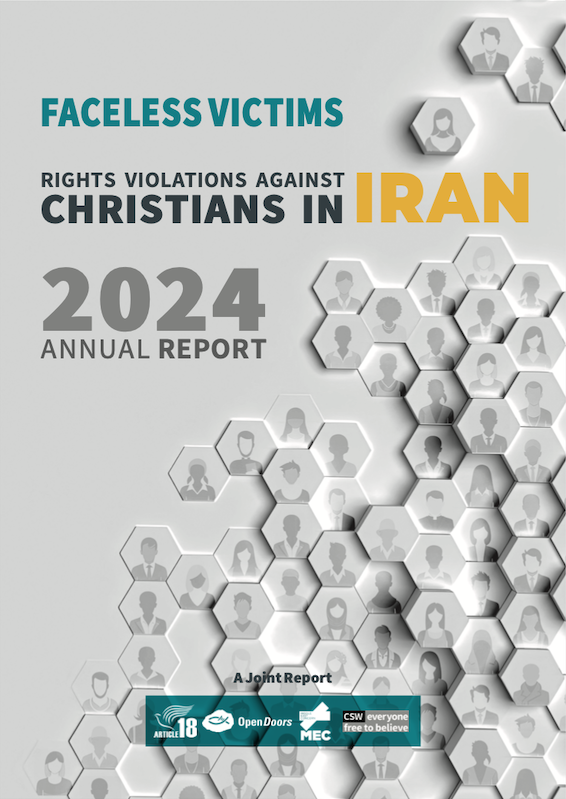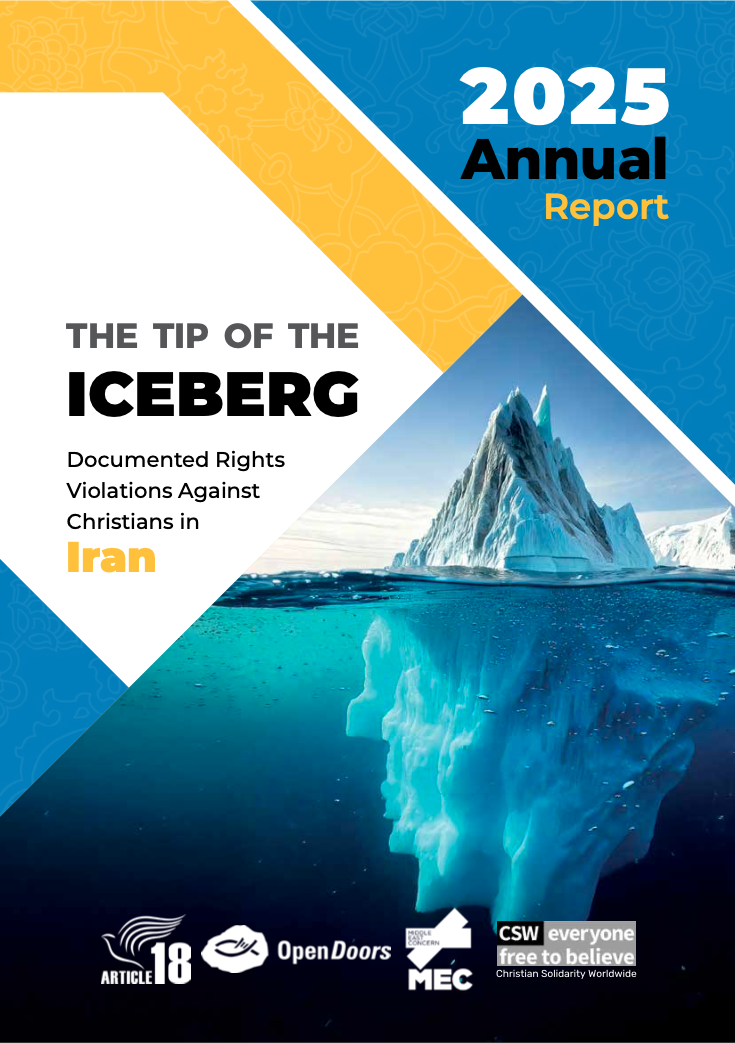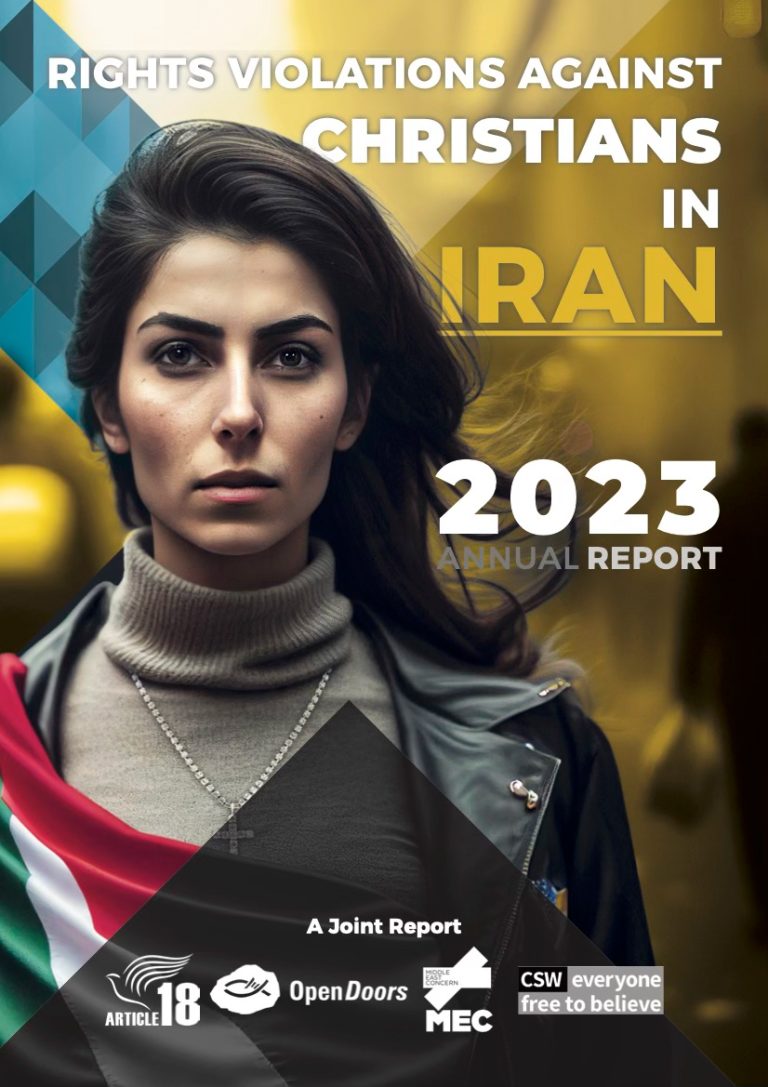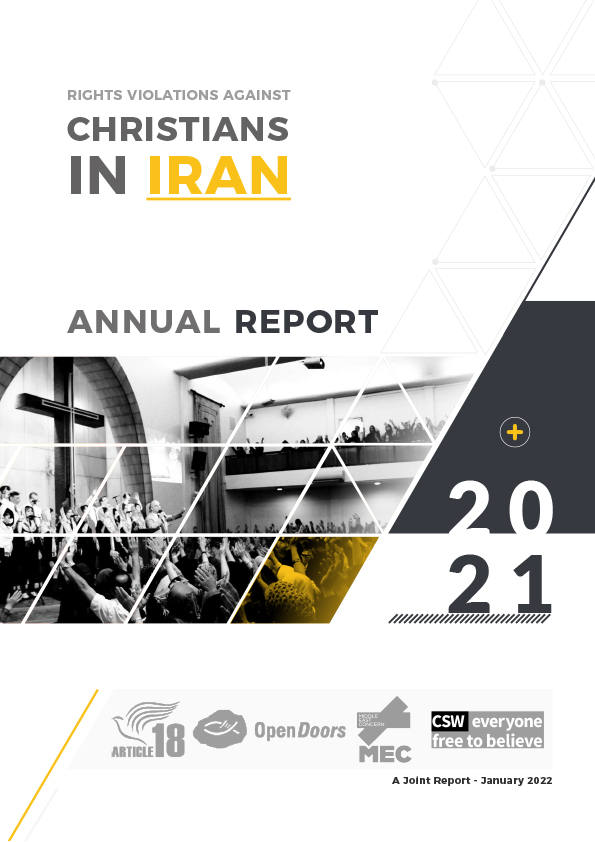Article18’s newly released annual report focuses on the many victims whose names and faces remain unknown, due to fear that publication of their cases may worsen their plight.
“Despite a comparable number of Christians being arrested in 2023 as in previous years – 166 arrests were documented in 2023, compared to 134 in 2022 – fewer names and faces could be publicised,” notes the report, ‘Faceless Victims: Rights Violations Against Christians in Iran’, released today in collaboration with Open Doors, CSW and Middle East Concern.
Arrests came in waves in 2023, the report notes, with “just a handful reported prior to June, then over 100 within the next three months, before a further rash of arrests at Christmas.
“However, very few of those arrested agreed to publicise their cases, leading to an increasing number of faceless victims.”
“By the end of 2023, at least 17 of the Christians arrested during the summer had received prison sentences of between three months and five years, or non-custodial punishments such as fines, flogging, and in one case the community-service of digging graves,” the report explains, but only two of those arrested during the summer were identified – Armenian citizens Elisa Shahverdian and her husband, Hakop Gochumyan, the latter of whom is still in Evin Prison.
Another trend in 2023 was the clear targeting of Bible distributors, with “over one-third of arrests targeting individuals in possession of multiple copies”.
Meanwhile, at least nine Christians were pardoned and released from prison, “though the majority were already nearing the end of their sentences, which related to the peaceful practice of their faith and therefore should never have been issued in the first place”.
The report also includes a section on the specific abuses of the International Covenant on Civil and Political Rights (ICCPR) that affect the Iranian Christian community.
Eleven different articles of the ICCPR are highlighted – including those relating to freedom of religion or belief, opinion and expression; peaceful assembly; and protection from arbitrary arrest, detention, and torture – with examples of how each violation has affected Christians.
The report also contains a special analysis section explaining how pressure on individuals and their families continues even after release from arrest or imprisonment.
Seven different types of post-prison pressure are listed – including continued monitoring and harassment; denial of employment and education; and new charges or reopened cases – all of which, the report states, “make it increasingly difficult for Christians to remain in Iran”.
“Many flee,” the report notes, “only to find a new set of challenges awaiting them as refugees, as shown in our 2023 report on The Plight of Iranian Christians Claiming International Protection in Türkiye”.
The report concludes with recommendations for Iran and the international community.
Iran is called on to “immediately and unconditionally” release all Christians “detained on charges relating to their faith and religious activities”, and to “clarify where Persian-speaking Christians may worship freely in their mother tongue, without fearing arrest and prosecution”.
The international community is encouraged to ensure Iran is “held accountable for failures to fulfil its obligations under international law”; that human rights infractions are “highlighted during bilateral and multilateral dialogues with Iran”; and that refugee-receiving countries “expedite resettlement for Iranian Christians in Turkey”.
The report is released on 19 February to coincide with the killing of Rev Arastoo Sayyah, who was murdered in his church office just eight days after the 1979 revolution. This incident was the first of many targeting Christians, and especially converts, under the Islamic Republic – an approach that, as this report shows, continues today.
You can read the full report here.




0 Comments
Trackbacks/Pingbacks